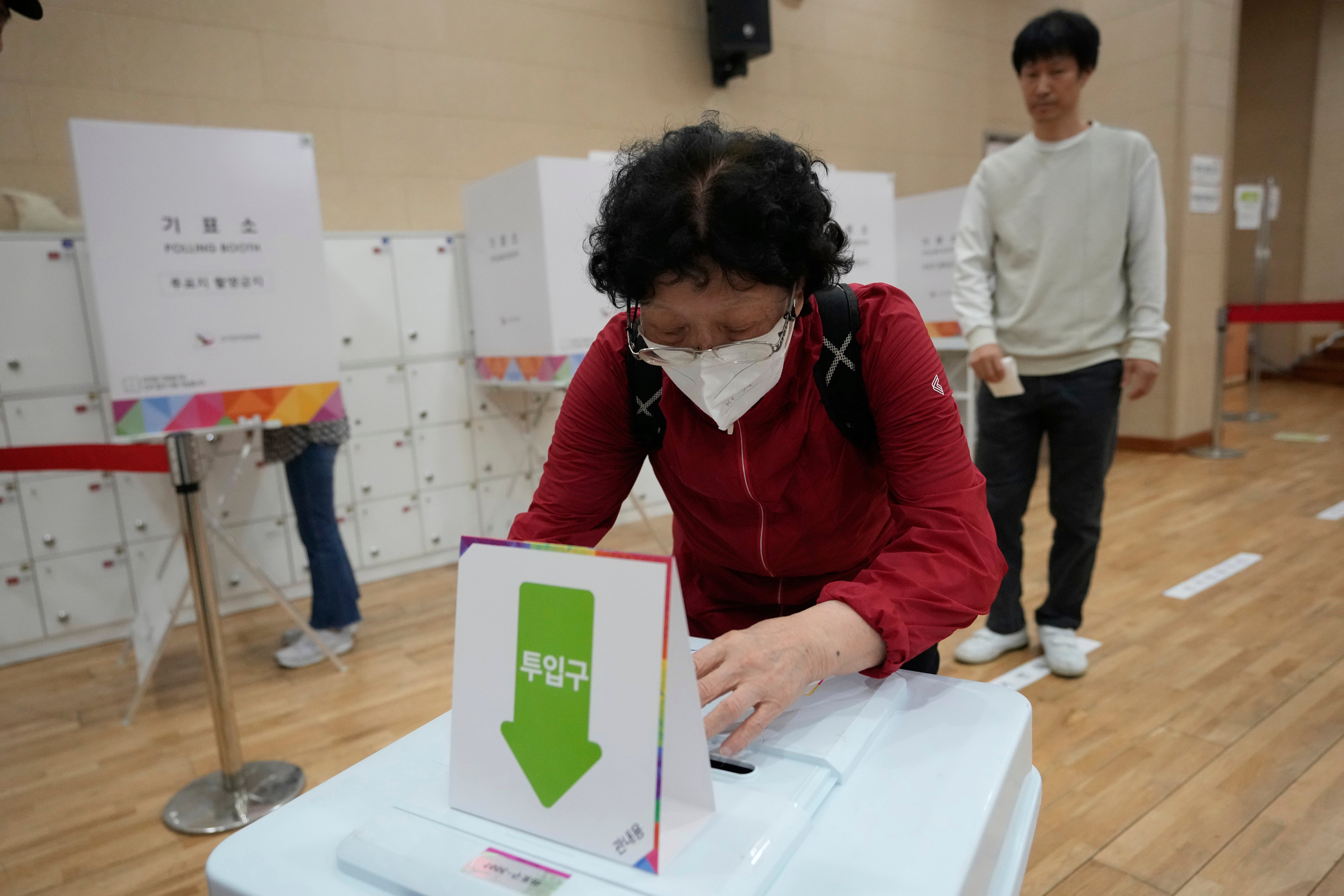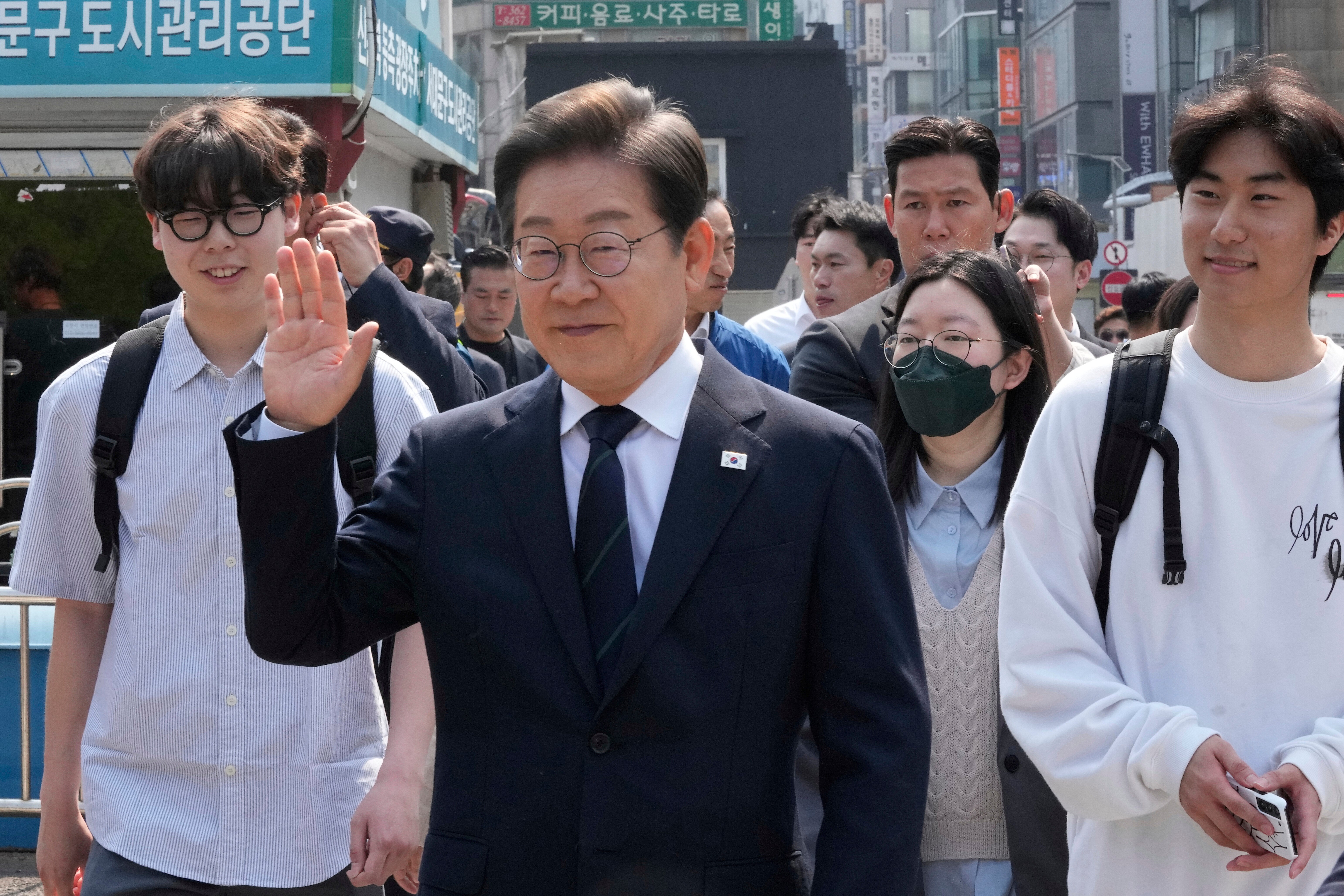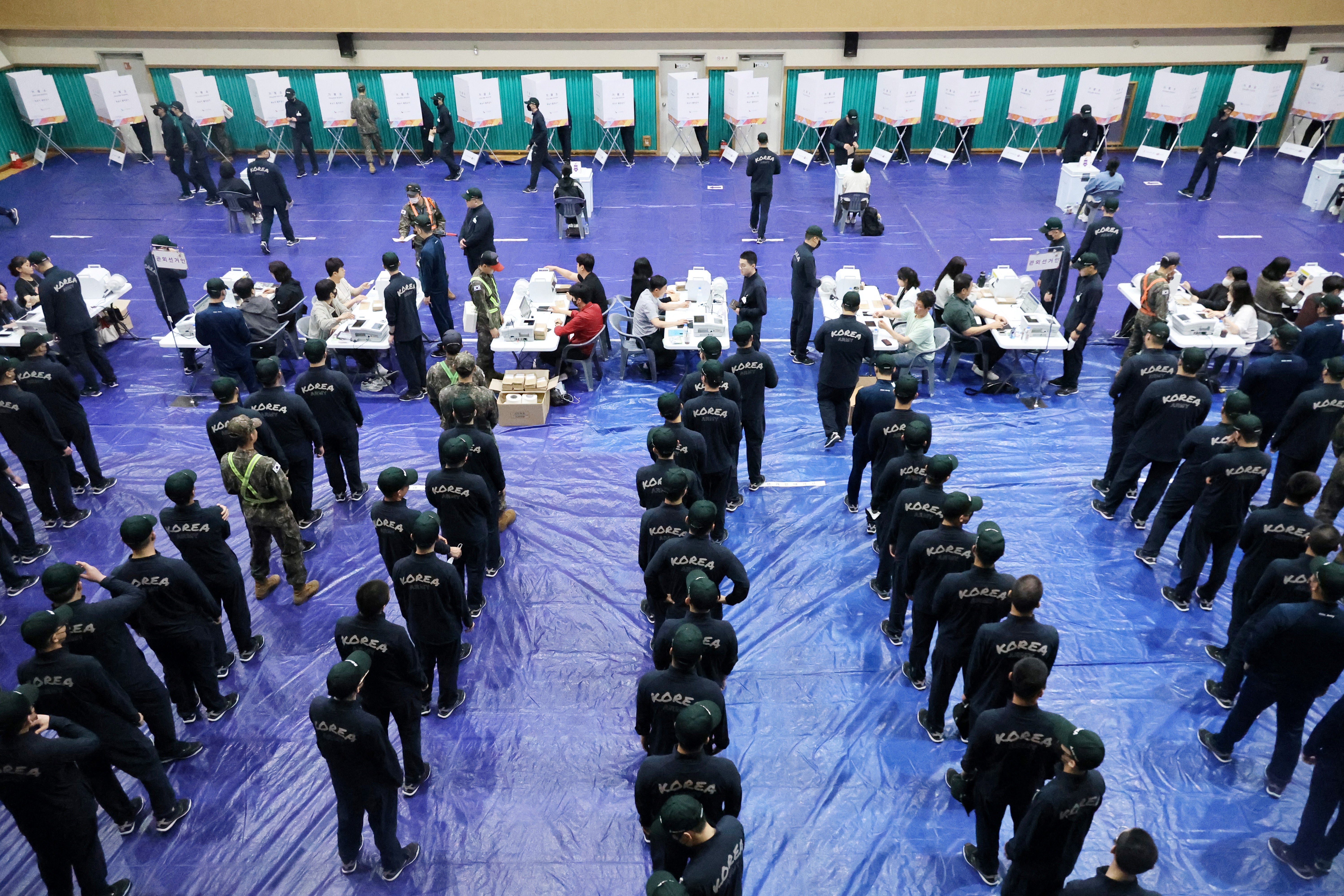The people of South Korea are heading to the polls for their 21st presidential election.
Voters will be hoping to restore political stability after months of turmoil.
The election aims to fill the power vacuum left by former leader Yoon Suk Yeol's failed attempt to impose martial law.
In this single-round election, the candidate with the most votes will be declared the winner and serve a five-year term.
Results are expected on the evening of Tuesday, 3 June or early on Wednesday, 4 June.
Here’s what you need to know about the leading candidates, key dates, and other important details.

Leading candidates
The top three candidates based on a Gallup Korea poll a week ago were the liberal frontrunner Lee Jae-myung of the Democratic Party, with 49 per cent public support, followed by his main conservative rival Kim Moon-soo of the People Power Party with 35 per cent and another conservative candidate, New Reform Party's Lee Jun-seok, on 11 per cent.
All of the candidates remaining in the race are men, with no women in the final lineup for the first time since 2007, according to the National Election Commission (NEC). South Korea has only had one female leader, Park Geun-hye.
One of the six candidates, independent Hwang Kyo-ahn, quit the race on Sunday to back Mr Kim, media reports said.
The youngest candidate is Lee Jun-seok, who is 40, and the oldest is Kim Moon-soo at 73.

Number and makeup of voters
There are 44.39 million eligible voters, with women accounting for 50.5 per cent of voters, according to data on the electoral roll from the interior ministry.
South Korea is one of the world's fastest ageing societies and the number of voters aged above 60 accounts for about a third of the electorate, outstripping the 28 per cent share of those in their 20s and 30s.
Gyeonggi Province is home to the largest number of voters, accounting for 26.4 per cent, followed by Seoul at 18.7 per cent and Busan at 6.5 per cent.
A total of 205,268 people overseas voted between 20-25 May in 118 countries, the NEC said.
Election security
South Korea's acting President Lee Ju-ho has said the government was "transparently disclosing the entire process of the presidential election", according to his office.
The National Election Commission will air CCTV surveillance footage of rooms storing ballots from early voting, with their entrances sealed before counting starts and transported ballots given police escorts, Lee said.
After votes are cast, ballots will be initially sorted by machines and then election workers will count them, the NEC said.

Election schedule
The official election campaign is relatively short in South Korea in a bid to contain costs. It started on 12 May.
There were 3,568 polling stations across the country open for early voting that was allowed between 29-30 May. Eligible voters could cast their ballots at any of the polling stations without pre-registration between 6am and 6pm.
Turnout for early voting has generally increased over the years, with more than a third voting early in recent presidential elections.
In the latest election, 15.4 million, or 34.74 per cent of the total, voted during early ballots between 29-30 May, compared to the 2022 election's proportion of 36.9 per cent.
Election day on 3 June is a public holiday and voting will run from 6am until 8pm with an indication of the results likely to start emerging that evening or early the next day.
On 4 June, the National Election Commission is expected to verify the results and the inauguration of the new president will be held.
Join our commenting forum
Join thought-provoking conversations, follow other Independent readers and see their replies
Comments